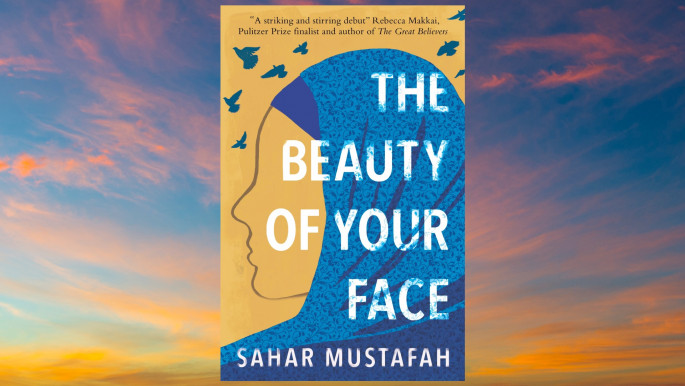 |
Exploring generational trauma with The Arsonists' City
The book is set in the US, Syria and Lebanon and the reader travels back and forth between the 1960s-1970s and the modern day. It revolves around Mazna and Idris – a couple with three adult children who took a life-changing summer holiday to Lebanon because Idris wanted to sell his childhood home and honour his father's death.
Mazna, an overbearing mother, had to convince her children to come with them. At the start, it seems to be a surface-level demand by a dismissive woman who seeks to control. But as the story unfolds, it becomes clear why Mazna was so scared of going to Lebanon without their support.
Alyan then takes the reader to 1965, the start of Mazna's youth where she is presented as a self-conscious girl living in Damascus who was trying to grasp her femininity and passion for acting. The introduction to a young and vibrant Mazna comes as a shock to the reader, who in the following chapters will see her life plummet into living through fear, loss and regret.
The book continues to go back and forth from the present moment to Mazna and Idris' youth, giving an intimate description of their adventurous adolescence with Zakaria, a Palestinian refugee who was a lifelong friend of Idris.
The pair would pick Mazna up from Damascus to war-torn Beirut, until a "betrayal" shattered the friendship and left Mazna scarred for life – especially after Zakaria's death.
The story then unfolds with unexpected twists thanks to Alyan marrying her masterful writing style to her background as a psychologist. She creates a complex tale with multi-layered characters, paired with a maze of emotions in an action-packed novel.
 |
The story then unfolds with unexpected twists thanks to Alyan marrying her masterful writing style to her background as a psychologist. She creates a complex tale with multi-layered characters, paired with a maze of emotions in an action-packed novel |  |
Secrets aren't forever
One of the main plots of The Arsonists' Tale is when it becomes clear that Mazna had been holding a secret that burdened her life and shrank her spirit.
 |
|
| Read more from TNA's Book Club: The Beauty of Your Face by Sahar Mustafah |
During her youth, she was admired for her talent and was leaping to her theatrical dreams, one play at a time. Idris fell in love with her when he saw her on stage, in her natural expressive element. She was one with her purpose, making her unstoppable and him obsessed.
She entertained Idris out of guilt and his ability to provide her adventure away from her Damascene life. However, when she fell for Zakaria, she refused to stay true to herself and stayed silent.
The price she paid for suppressing her feelings caused her to act in an impulsive expression of love, which had a consequence that she only knew about after she got married left and to the US.
This consequence was one she was forced to keep secret for the rest of her life out of fear of breaking Idris' heart and her family being destroyed.
Little did she know, carrying the burden for so long got in the way of her motherhood, especially with her inability to connect to Ava, her eldest daughter, who had no idea why her mother was always so cold with her.
The secret came to the surface when her children unexpectedly found out when they chased an elderly lady that Mazna was afraid of.
"Mazna is a cautionary tale. I wrote her to show that if you choose silence, that becomes your legacy and it's what your children inherit," Alyan told The New Arab as she described the Syrian character's melancholic life.
 |
Mazna is a cautionary tale. I wrote her to show that if you choose silence, that becomes your legacy and it's what your children inherit |  |
What is love when co-dependency exists?
At the start of the book, Alyan projects Mazna and Idris as a very normal Arab-American couple whose strained communication may have been a product of being married for so long.
They raised three children without dealing with their own trauma – two of whom, Marwan and Najla took after their mother's creativity by entering the music industry.
The eldest sibling, Ava, took the path of academia and endured her own muted marital life with her cheating husband and two children.
"Despite Mazna not marrying Idris out of love and the two hurting each other throughout their marriage, they have a bond," Alyan explained.
"Their story may seem dramatic, but it surrounds the question of 'what could have been?' that many adults from their generation live with because they did not have the opportunity to realise their dreams due to cultural norms, war and poverty."
 |
Their story may seem dramatic, but it surrounds the question of 'what could have been?' that many adults from their generation live with because they did not have the opportunity to realise their dreams due to cultural norms, war and poverty |  |
Through the characters, Alyan showed that time doesn't heal such traumas when they've been kept dormant through silence.
 |
|
| Read more from TNA's Book Club: June Rain: A powerful portrait of identity and division in Lebanon |
Idris announced to his family that he will sell his childhood home by revealing that his patient's heart told him to do so when he picked it up during surgery. This is a stark symbol of his own heart catching up to him, despite refusing to connect with it.
"Idris is a coward. I have love for him, but he is weak and he hasn't faced his guilt. He ran away from home when Zakaria died and when the guilt came back to the surface years later, he decided to sell his home without saying why," Alyan said.
"He did everything he could to keep Mazna, which made her hate him."
Alyan went on to question the intentions behind both of them loving Zakaria, who was never given a chance to be himself. Mazna spent her life thinking about their lives together if he hadn't been killed and Idris blocked out the memory of his friend to not bring painful memories to the surface.
 |
I made Zakaria a Palestinian refugee living in Lebanon on purpose because he was never given a chance to be himself and is always a projection of what others believe him to be |  |
"I made Zakaria a Palestinian refugee living in Lebanon on purpose because he was never given a chance to be himself and is always a projection of what others believe him to be," Alyan, who is also of a Palestinian heritage, said.
"Mazna spent her whole life yearning for what was lost when Zakaria died, but she never got to spend that much alone time with him and was a teenager when she used to hang out with him. They never really had a chance, so the pieces she filled about their relationship was really a product of her projections and imagination."
Sexuality and religion
Najla, the couple's youngest daughter is a lesbian musician who only came out to her brother when she was drunk. She is the only sibling who moved back to Lebanon and despite never coming out to her fans, many sensed that she was gay and admired her for it.
The family is a liberal and culturally Muslim, but Mazna rejects homosexuality, leaving Najla closeted.
"There was no real motive behind Najla's sexuality. When I was writing her, she felt gay so I decided to honour that about her in the book," Alyan said.
"When I wrote Salt Houses, there was a character who I knew was queer, but I didn't specify their sexuality because I feared the communal backlash that it might cause – something I ended up regretting. Being able to write about Najla's character so freely was a healing for me."
The family is of a Muslim heritage, but their spiritual expression was rarely mentioned. "They had to be culturally Muslim because if they were practicing, there would be no story," Alyan explained.
"But this is also the Islam I grew up with. Cultural Islam is the norm in my family – we connect with the identity, but practice at our own will with a very open interpretation," she added.
 |
Alyan picked common traumas in the Arab community and created a storyline with experiences that was relatable to very few, but emotions felt by the many |  |
The Arsonists' Tale is addictive, action packed and emotional all in one. Alyan picked common traumas in the Arab community and created a storyline with experiences that was relatable to very few, but emotions felt by the many.
The seemingly typical start to the novel created room for a plethora of twists and turns, which leaves the book interesting, but at some points hard to follow.
Just when the reader gets comfortable with forming an opinion of a character, Alyan adds another layer to them, changing a whole perception of them.
Overall, The Arsonists' Tale a brilliant book that can read multiple times with a different lens. Its complexity means each time it's picked up, the reader will latch on to a different layer of the book and discover something new.
Diana Alghoul is a journalist at The New Arab.
Follow her on Twitter: @SuperKnafeh and Instagram: @flowerknafeh
The New Arab Book Club: Click on our Special Contents tab to read more book reviews and interviews with authors:





 Follow the Middle East's top stories in English at The New Arab on Google News
Follow the Middle East's top stories in English at The New Arab on Google News


